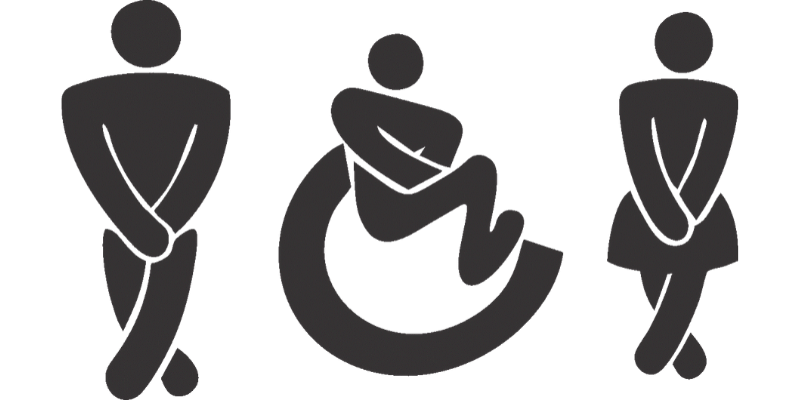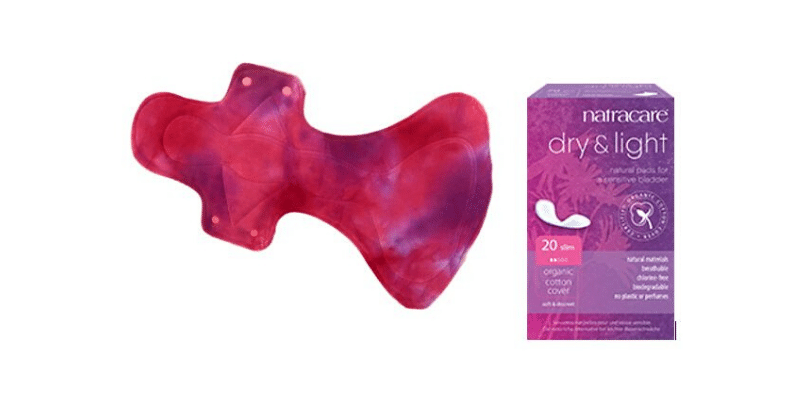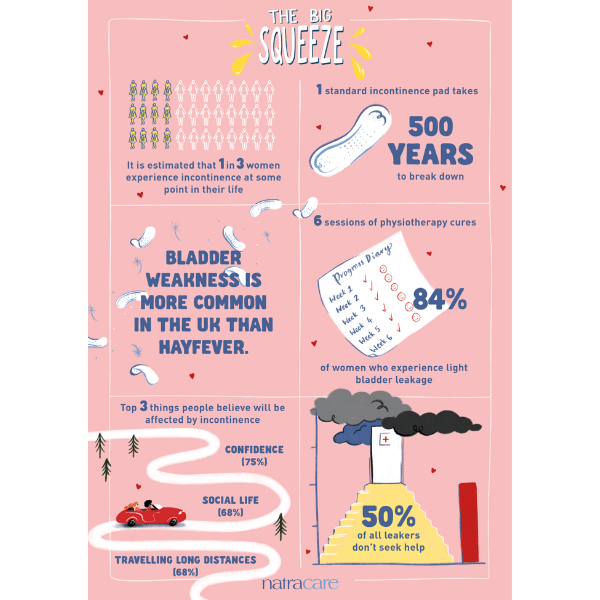Incontinence pads
WHAT’S GOING ON?
It’s time to smash taboos around bodily fluids and start speaking more openly about our health.
Believe it or not, 5-10% of the UK population experience some form of bladder incontinence. You’re not the only one who does a little wee when you laugh at our brilliant jokes! All gags aside, there is a way to prevent plastic pollution from incontinence pads – and there may even be a way to cure your incontinence too!
It’s quite normal for women to experience a bit of leakage after giving birth, but it can also be caused by medication, endometriosis, fibroids, surgery, getting older, being overweight, stress and more.
In men incontinence can be caused by prostate issues, diseases like multiple sclerosis and diabetes, bowel, lower back or prostate surgery, old age, obesity or lack of exercise, chronic coughing, urinary tract infections (UTI) or constipation.
Some people find that weeing themselves when they cough, laugh or sneeze becomes an unavoidable part of life. Others find standing up, running or jumping causes problems. There’s no harm in visiting your GP if symptoms come on suddenly or get worse.
Some people manage to rebuild their muscles with pelvic floor exercises or even an operation. But for those of us who don’t manage to regain enough strength, incontinence pads become an inevitable fact of life.

WHAT’S THE PROBLEM WITH DISPOSABLE INCONTINENCE PADS?

All big-brand, disposable incontinence pads and pants have a high single-use plastic content.
500
Disposable incontinence pads could take up to 500 years to break down, far outliving the person using them!
Even then, they only break down into microplastics, which enter our soils, our waterways and our food chain.
With an aging population, this single-use plastic problem is only going to grow, so let’s nip it in the bud.
WHAT CAN I DO
Just like with period pads and pants, you can find reusable or organic disposable options that cut out the plastic, chemicals and synthetic fragrances:
- Honour Your Flow offers incontinence pads.
- Natracare offers plastic-free, compostable alternatives.
- Check out this article for reusable incontinence underwear for men.
- WUKA, Modibodi and THINX all offer reusable incontinence underwear for women.
- Visit your GP to check whether you might be able to prevent leaks pelvic floor exercises or treatment for a condition.
- Never flush incontinence pants or pads down the toilet. Only flush the 3 P’s – pee, (toilet) paper and poo!

SPEAK UP
Knowing that this issue is more common than hay fever in the UK might give you some confidence to speak more openly about bladder incontinence and help to break the surrounding taboos. You’ll probably find that other people share the experience and understand what you’re going through.


